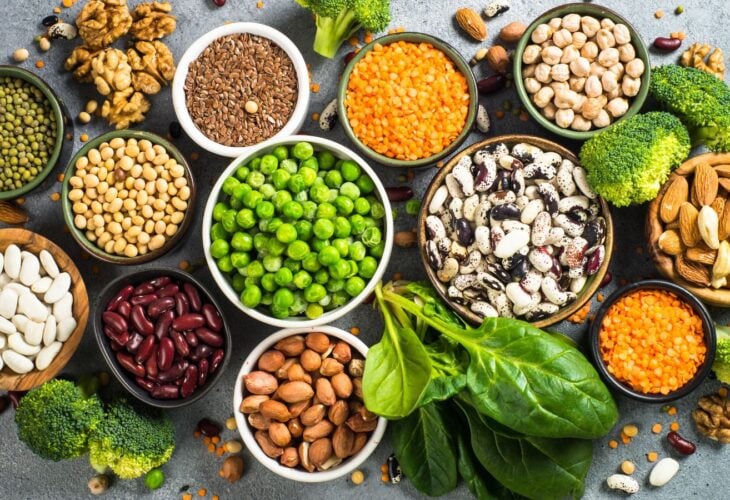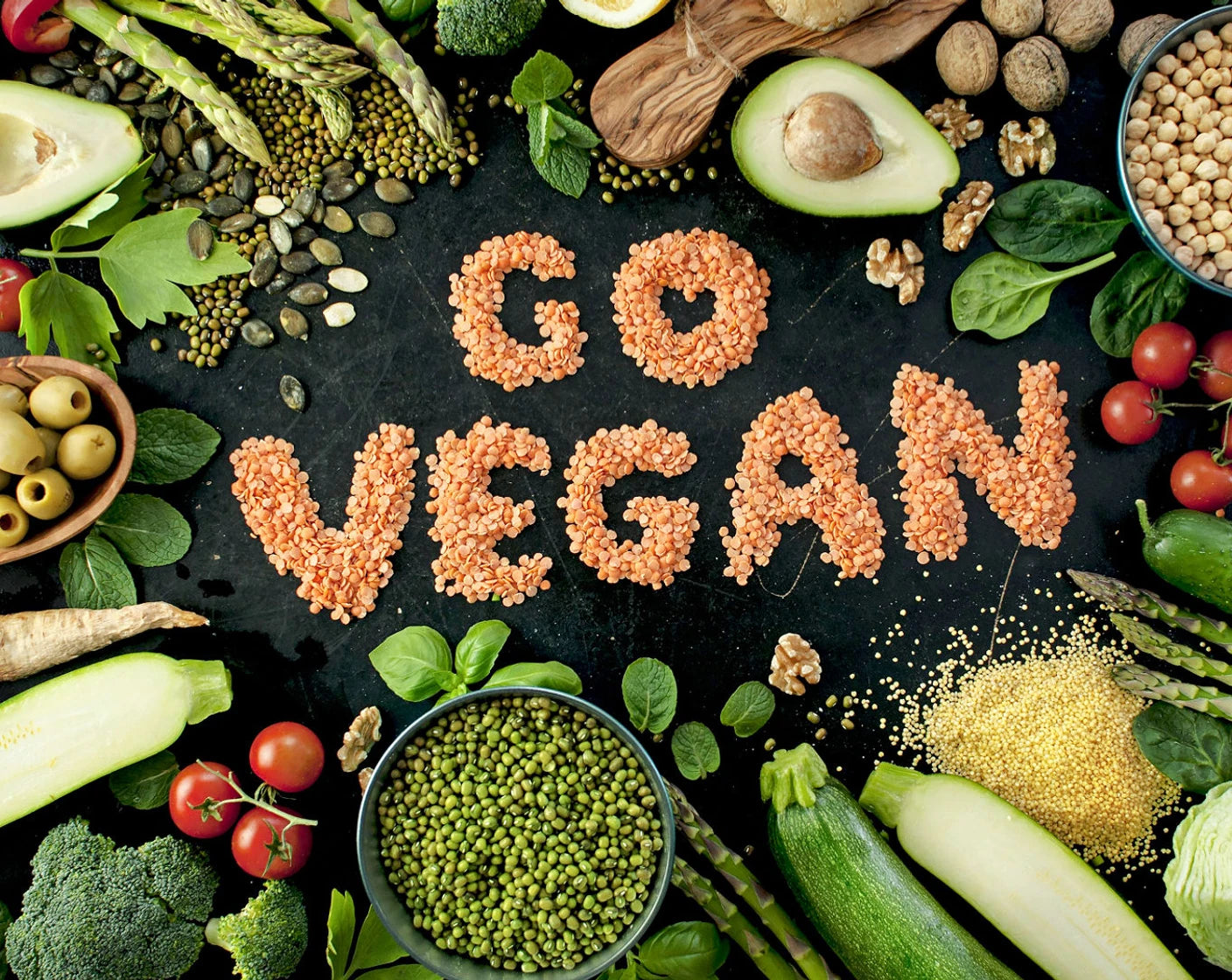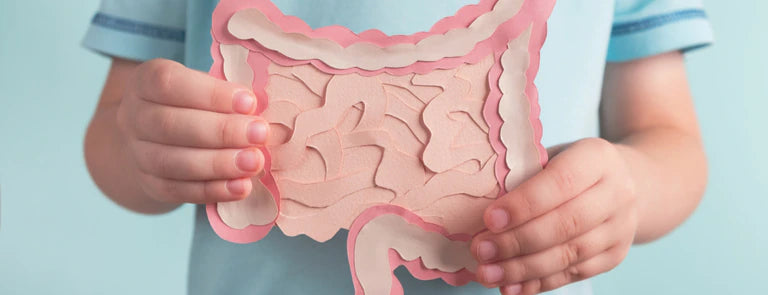Protein is an essential nutrient for our body that plays a vital role in building and repairing tissues and producing hormones, enzymes, and other bodily necessities. It is often associated with animal-based foods such as meat, fish, and eggs. However, there are plenty of delicious and healthy plant-based protein options available for vegans!
Those on plant-based diets may think it challenging to meet the recommended daily intake of protein, especially if they are new to veganism. But with a little planning and knowledge about protein-rich plant-based foods, you can easily meet your protein needs.
We need about 7 grams of protein every day for every 20 pounds of body weight. Because protein is found in an abundance of foods, many of which we know to be otherwise unhealthy, it’s crucial to pay attention to what else is coming along with it.
What Are Some Healthy Protein Sources for Vegans?
Legumes
Legumes are a group of plants that include beans, lentils, chickpeas, and peas. They are an excellent source of protein, fiber, iron, and other essential nutrients. One cup of cooked beans contains around 15 grams of protein, which is equivalent to the amount of protein found in 2 ounces of meat. Lentils, in particular, are a great source of plant-based protein, with one cup of cooked lentils providing around 18 grams of protein.
Legumes can be used in a variety of staple dishes, such as soups, stews, salads, and curries. They can also be mashed and used as a base for veggie burgers or meatballs.
Nuts and Seeds
Nuts and seeds are both great sources of protein and healthy fats. They also provide other important nutrients such as fiber, vitamin E, and magnesium. One ounce of nuts or seeds provides around 6 grams of protein.
Nuts and seeds are fantastic to-go snacks and can also be added to salads, stir-fries, and baked goods. Nut butters, of course, are great for spreading on toast or using as a tasty dip with fruits or vegetables.
Grains
Grains such as quinoa, brown rice, and organic oats are also smart choices for protein. One cup of cooked quinoa provides around 8 grams of protein, while one cup of cooked brown rice provides around 5 grams.
We love using grains as a base for vegan power bowls or to add a little variety to our salads.
Tofu
Tofu is a soy-based product that is made by coagulating soy milk and pressing the curds into blocks. It is a versatile ingredient that can be used in a wide range of dishes, from stir-fries to smoothies. Tofu is an excellent source of protein, providing around 10 grams of protein per 100 grams of tofu.Be sure to use organic soy foods as most soy is GMO.
Tofu comes in different varieties, including silken, firm, and extra-firm. The firmer types are best for stir-fries, while the silken variety is ideal for smoothies and desserts. The variety of textures and light flavor make tofu a versatile protein option for those on a plant-based diet.
Tempeh
Tempeh is another soy-based product that is made by fermenting cooked soybeans. It has a nutty flavor and a firm texture that makes it a great substitute for meat. Tempeh is also an excellent source of protein, providing around 15-20 grams of protein per 100 grams of tempeh.
Tempeh can be sliced and used in sandwiches, salads, and stir-fries. It can also be crumbled and used as a meat substitute in pasta dishes or tacos.
Soy products may contain phytoestrogens, which are compounds that can mimic the effects of estrogen in the body. While some studies suggest that phytoestrogens may have health benefits, others suggest that they may have negative effects on hormone balance in some individuals. As with most foods, it’s a good idea to eat soy and tempeh in moderation.
Raw Vegetables
Raw vegetables do contain protein, but the amount is generally lower compared to other plant-based protein sources such as legumes, tofu, and tempeh. That’s why it’s important to know which vegetables contain higher amounts of protein. For example, one cup of cooked peas contains around 9 grams of protein, making them a good plant-based protein option. Additionally, soybeans and edamame are also high in protein. Our blog on Raw Vegetable Protein Amounts can be particularly useful here.
While raw vegetables may not be the most significant source of protein, eating a variety of them is still an important part of a healthy vegan diet. In addition to the protein they do provide, they have a wide range of essential nutrients such as vitamins, minerals, and fiber which will help your body carry out important bodily functions.
Seitan
Seitan, a.k.a. “wheat meat,” is made from wheat gluten. It has a chewy texture and a meaty flavor that makes it a great substitute for anyone transitioning to a plant-based diet. Seitan is also an excellent source of protein, providing around 25 grams of protein per 100 grams of seitan.
Seitan can be sliced and used in sandwiches, stir-fries, and curries and is also often used as a bacon substitute. Seitan should be derived from Non-GMO or organic wheat.
Will I Need Supplements When Opting for Plant-Based Protein?
As a general rule, if you are getting enough calories for your energy needs you will be getting enough protein. However, it can sometimes be challenging to get all of the essential nutrients your body requires, especially if you are an athlete or have high protein needs. Supplements can be helpful to ensure you are meeting your nutrient requirements.
Protein supplements can be a convenient way to increase your protein intake. Our Organic Essential Protein is available in 3 delicious flavors and features a blend of protein concentrates from dry peas and rice along with organic raw seeds that are high in protein and minerals. These protein supplements are easily digestible and low allergen: no soy, lactose, dairy, eggs, nuts, gluten, wheat, or artificial flavors or preservatives.
In addition to protein, there are other supplements that may be helpful for individuals following a plant-based diet. For example, vegans and vegetarians are typically low in vitamin B12 because it is not found in plant foods, and people who eat meat are often still lower than they should be. Vitamin B12 can be overlooked as a key, missing factor when the body is dealing with fatigue, anemia, or depression, and is essential for nerve and brain function. A deficiency in B12 can be easily remedied with a supplement such as our Vitamin B12, B6, Folate daily tablets.
It's also crucial to note that relying solely on supplements to meet your nutrient needs is not ideal. Whole, plant-based foods contain a wide range of nutrients that work together synergistically to support optimal health so your body can function the way God intended. Therefore, it's important to prioritize a balanced and varied plant-based diet that includes a variety of fruits, vegetables, whole grains, legumes, nuts, and seeds.






